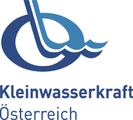Small hydropower as a game changer for climate protection and water protection
The small hydropower industry takes seriously its responsibility to preserve our local water resources and the creatures that live in them
Dr. Paul Ablinger, managing director of the Austrian Small Hydropower Association
Vienna (OTS) – Since its inception in 1993, World Water Day has served as an annual reminder of the importance of water to life on our planet. The theme of this year’s World Water Day, “Leveraging Water for Peace,” emphasizes the role of water as a source of life and a potential source of conflict in times of scarcity. In this context, small hydropower Austria emphasizes the importance of small hydropower plants for water protection and sustainable energy production. Good ecological water status and the use of small hydroelectric power plants can go hand in hand. Through innovative technologies and sustainable practices, the industry shows how energy production and climate and nature conservation can be successfully combined.
„The small hydropower industry takes seriously its responsibility to preserve our local water resources and the creatures that live in them
“, says Paul Ablinger, managing director of the Austrian Small Hydropower Association.
Today, small hydropower plants play an important role in the ecological continuity of water bodies. Through fish ladders and other protective measures, small hydropower plants also contribute to the preservation of biodiversity by protecting natural habitats and promoting the ecological connectivity of water systems.
Data from BOKU Vienna (ÖkoReSch preliminary study) also show that small hydropower plants show no change in macrozoobenthos: In total, a comparison of uninfluenced full water stretch and residual water stretch was made on glacier streams (n=292) and headwater streams (n=446). In the remaining water section, the number of taxa, i.e. the number of different groups or categories in the biological classification, was practically unchanged and tended to even be higher. In any case, no deterioration could be detected. Sustainable small hydropower is now feasible with good ecological water status. This is also shown by the monitoring data at the Saldurbach in South Tyrol: since 2009, monthly examinations of macroinvertebrates (invertebrates with a size of approx. 1 mm) have been carried out there. A hydroelectric power station was built in 2015. Data going back to 2019 shows no change in organisms attributable to the power plant. If there is enough remaining water, macroinvertebrates are not harmed.
About the Austrian Small Hydropower Association:
As a non-profit association, Small Hydropower Austria represents the interests of the small hydropower industry (small hydropower operators, planners and suppliers) and advocates for hydropower as a clean and emission-free form of electricity generation in Austria. With 4,000 systems, small hydroelectric power plants provide ten percent of Austria’s electricity needs, supply 1.7 million households and save six million tons of CO2 annually. Small hydropower is active climate protection and the backbone of renewable electricity generation in Austria. All information at: https://www.kleinwasserkraft.at/
Questions & Contact:
Small hydropower Austria
dr. Paul Ablinger
Managing Director
0664/88253348
p. ablinger@kleinwasserkraft.at
http://www.kleinwasserkraft.at/presse
Mag. Martin Aschauer
Himmelhoch GmbH – text, PR and event
0676 350 18 89
martin.aschauer@himmelhoch.at
